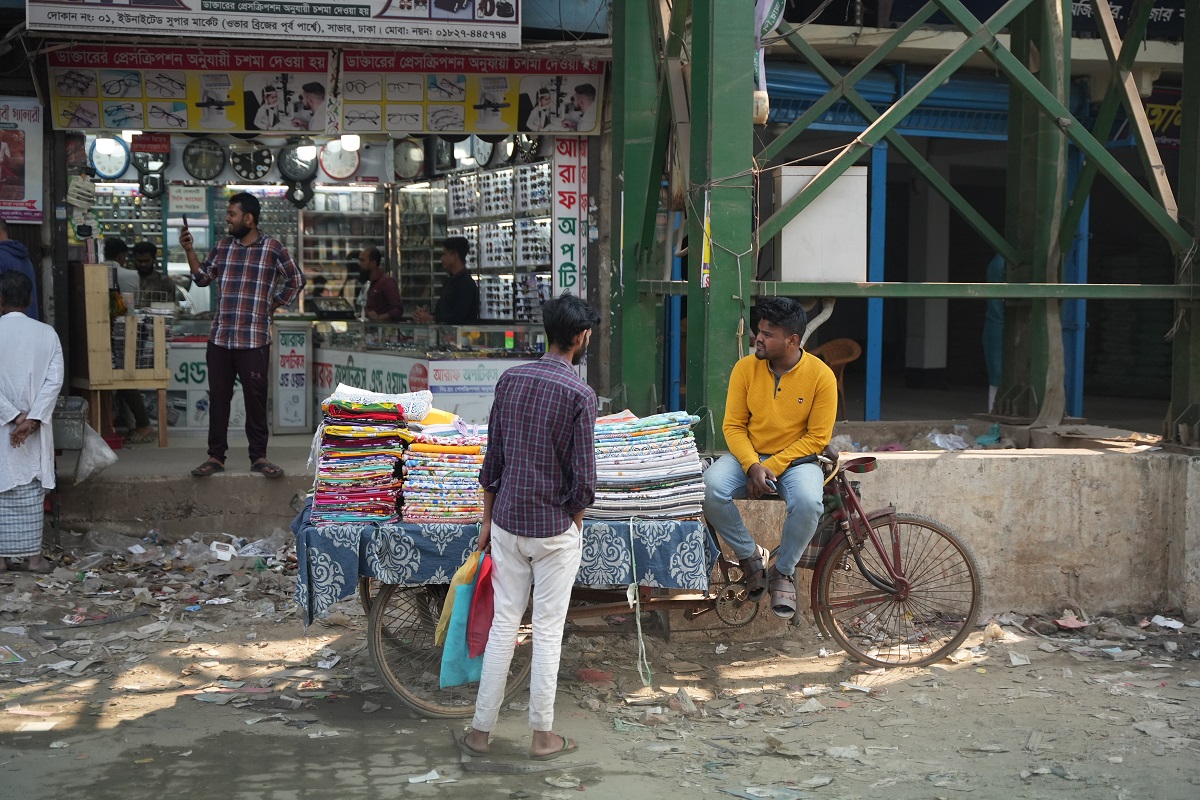Anti-government protests linked to youth unemployment
While an Internet and communications blackout continues, the number of arrests topped 2,500. Unlike in the past, dissatisfaction with the government affects all segments of society. This has to do with a stagnant economy and changes to the workplace, Fr Gian Paolo Gualzetti reports. The PIME missionary runs a youth labour centre outside the capital Dhaka.
Dhaka (AsiaNews) – Despite the apparent calm of the last 48 hours, more than 2,500 people have been arrested and another 174 have died in clashes between police and demonstrators, following protests against a court decision to reinstate public sector quotas for the descendants of those who took part in Bangladesh’s 1971 War of Liberation, Agence France-Presse (AFP) reports.
Amid an Internet and communications blackout continues, the curfew remains in place, but the authorities lifted it for an hour to allow people to buy basic necessities. The army chief today said that the situation had not yet returned to normal.
Local sources in the north of the country told AsiaNews that they were unable to reach Dhaka, the capital. Due to the internet shutdown, it is not possible to book domestic flights, and it is unclear, due to the curfew, whether it is possible to make long-term trips by car. Local police say that travel is possible, but many prefer not to risk it and choose to stay at home.
The government is also expected to approve the decision issued yesterday by the Supreme Court reducing the quotas for the grandchildren of "freedom fighters" from 30 per cent to 5 per cent, while the quota for disabled and ethnic minorities rises to 2 per cent, leaving 93 per cent of public sector jobs to be assigned on the basis of "merit".
The quota system was abolished in 2018, again following university protests, but at the time, the economy was doing well. This is not the case presently; some statistics show that 41 per cent of young people are considered inactive (do not study, nor work or follow vocational training).
For this reason, according to many commentators, the protests, which quickly turned into anti-government protests, mark a point of no return for Bangladesh.
The country has been led since 2009 by Prime Minister Sheikh Hasina, who was re-elected last January for a fourth term, after the main opposition party, the Bangladesh Nationalist Party (BNP) boycotted the poll. Its leader, former Prime Minister Khaleda Zia, has been under arrest since 2018 on corruption charges.
Over Ms Hasina weigh accusations of authoritarianism. Despite favouring economic development (annual growth rates of more than 7 per cent before the pandemic), she is broadly disliked in all social classes.
“In the last 30 years we have seen the transformation of Bangladesh from an agricultural country to an industrial one, with the creation of many new jobs,” said Fr Gian Paolo Gualzetti, a PIME missionary and head of a youth labour centre in Zirani, on the outskirts of Dhaka, speaking to AsiaNews.
Named after “Jesus the Worker", the facility hosts young people, mostly from tribal areas who, after completing specialisation courses, look for work in the city.
“The level of education has also increased, making it increasingly harder for young people to get the job of their dreams,” said the clergyman.
Many young people found new, online job opportunities with foreign companies, while others try their luck abroad, "where they know they can get higher salaries".
Although the outbreak of protests is linked to the public sector (more coveted, especially by those who are educated, thanks to better, stable salaries and the possibility of obtaining a pension), growth in the private sector has slowed down as well.
“On the one hand, manufacturing, especially in the garment industry, is moving eastwards, to countries like Laos or Vietnam, where the workforce is even cheaper," explained Fr Gualzetti.
“On the other hand, after the Rana Plaza tragedy, there were pressures to make the work environment more humane: salaries were increased and hours, including overtime, were regulated. But foreign companies have not increased the capital available, so local entrepreneurs have found themselves forced to reduce the workforce.”
In October last year strikes took place (which the opposition tried to capitalise on) prompting the government to double the salary of four million workers employed in the garment sector, from 8,300 taka (US$ 75) to 23,000 (US$ 210).
But eventually it had to put the brakes on further increases to attract foreign capital and not lose competitiveness to other countries in the region.
20/07/2024 17:02
07/12/2017 17:37
12/07/2024 13:46







.png)












